Theatre chains battling it out over Vietnam
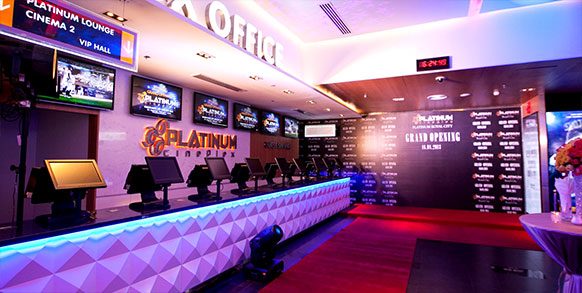 |
First casualty
Earlier this week, Vincom Retail announced the termination of its contract with MVP Co., Ltd., the company managing the Platinum movie theatre chain. Accordingly, from February 24, three Platinum theatres at Vincom Mega Mall Royal City, Vincom Mega Mall Times City, and Vincom Plaza Long Bien will stop operating and have to start procedures to return the space to Vincom Retail.
Established by Indonesian company Multivision Plus, the Platinum chain is present in many countries, including Indonesia, Vietnam, Malaysia, Singapore, the Philippines, Thailand, India, Cambodia, and Myanmar.
Since its establishment in January 2011, Platinum Vietnam has opened a total of five theatres. In Hanoi it is one of the biggest chains with 34 rooms in total. After the closure of its three Vincom locations, Platinum will only have two theatres in Hanoi at The Garden Me Tri in Tu Liem district and Platinum Nha Trang, with a total of nine rooms.
Talking to Zing.vn on February 21, a Multivision representative confirmed that Vincom Retail had terminated the contract before its expiration date.
Talking to Dantri.vn, Tran Mai Hoa, CEO of Vincom Retail, said that the two sides were no longer in sufficient agreement to continue cooperating.
"The movie theatre is an important highlight of a mall. Because we thought that MVP was going to commit to us for a long time, we gave them incentives and support so that we can provide the best service to customers together. However, after many years of operating, Platinum’s investments fall short of expectations and the quality of the theatres now no longer fits the standards of Vincom Retail’s malls,” she said.
She added that in the past year, MVP has been repeatedly late with rent payments to Vincom Retail. “Once it took us 10 written notices to get them to pay,” she said. “At the moment, MVP still owes money at Times City.”
“On the other hand, the low quality of Platinum theatres affected the overall quality of our malls. We have received feedback from customers and saw bad reviews for Platinum collected by market research companies,” she said.
She added that the two sides had met numerous times to resolve the problems, but Platinum did not make improvements. That is why Vincom Retail decided to unilaterally terminate the contract. “We have given them extensions so they can return the space. We have also considered the legal dimensions of the decision very carefully,” she said, adding that the company will compensate MVP for the termination of the contract.
“Our actions are legally correct, so if MVP sues, we are ready to see the lawsuit to its end. If they do not cooperate, it might even be us who sues them. But we are looking for a peaceful end to this story,” she said.
The battle is still ongoing
In 1995, the government opened the movie screening market to the private sector. After decades of being controlled by state-owned enterprises, the market suddenly saw new foreign players. State-owned movie theatres saw declining market shares due to the limited variety of movies screened, the bad facilities, and the low quality service, and have now become almost a thing of the past.
When the Platinum theatres at Vincom Royal City and Times City started operation in 2013, they were the biggest in Vietnam. Platinum Cineplex Royal City has an area of 6,300 square metres, with 10 rooms and a total of 1,700 seats. Platinum Cineplex Times City has an area of 5,300 square metres, 11 rooms and a total of 2,085 seats. Platinum Cineplex-Long Bien has four 2D and 3D Digital rooms with a total 839 seats.
But heavy investment in scale is not enough. Viewers pick CGV and Lotte theatres because “their sound is better.” Moreover, there is a lack of loyalty programmes. At the time of closing, 6 years after being established, the Platinum Friend Card was yet to start functioning, according to the company website.
At the moment there are five big movie theatre companies in Vietnam. Besides Platinum, there are CGV by CJ, Lotte, and two domestic names, Galaxy and BHD.
BHD Star Cineplex is run by Binh Han Dan Ltd. and Galaxy Cinema is run by Thien Ngan Film JSC. At the moment, these two have seven theatres each, with a market share under 10 per cent.
CGV and Lotte dwarf them both in terms of the number of theatres and seats. CGV currently has 38 theatres, with the highest number 16 in Ho Chi Minh City theatres and six in Hanoi. The chain totalled 247 rooms by the end of 2016, up 20 per cent compared to the end of 2015.
CGV spans over 11 cities and provinces. In 2016, as reported by newswire VnExpress, CGV earned a revenue of VND1.82 trillion ($80 million), up 3.3 per cent, and a net profit of VND93 billion ($4.08 million), three times as much as in 2015.
Meanwhile, Lotte, entering Vietnam in 2008, operates in 20 cities and provinces, higher than CGV, but has a lot fewer, 29 theatres. In the south, Lotte has a stronger presence than CGV, but in Hanoi, for example, Lotte cinemas are located far from the city centre, unlike CGV theatres.
However, Lotte is behind the other three in terms of technology as it has only officially launched online ticket purchasing on February 21 for theatres in Hanoi, a feature that will be available in Ho Chi Minh City on February 28.
VnExpress quoted Korean Economic Daily as saying that in the first half of 2016, Lotte Cinema in Vietnam saw a revenue growth of 29.9 per cent and gross profit growth of 87.6 per cent on-year.
Both Korean giants have slowly achieved their status by acquisitions. Arriving to Vietnam in 2008, Lotte Cinema acquired Diamond Cinema, the joint venture between Korean cineplex company Fellas and Vietnamese company Fafilm. In 2011, CGV spent $73.6 million on buying out partner Megastar in their joint venture, then changed the name of Megastar theatres into CGV.
The market is growing with increasing per capita income. The spending of each customer is growing too. VnExpress quoted CGV and Lotte Cinema as saying that Vietnamese customers spend $4.04 on average each time they go to the movie theatre, which is still lower than in South Korea ($6.29), but the growth rate is far higher.
Companies that cater to the taste of the majority of Vietnamese youth, the demographic currently accounting for the largest percentage of the population, by screening Hollywood blockbusters and have the financial capacity to win the rights to distribute for Hollywood studios, and to invest in quality equipment, will win.
| Disappearing Vietnamese state-owned movie theatres
|
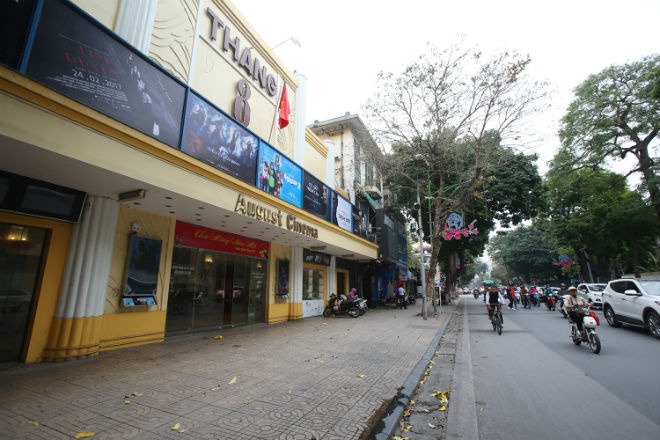 |
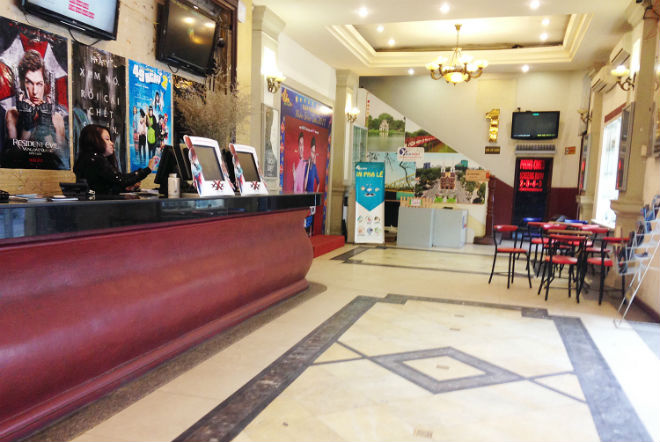 |
| August Cinema, located on one of the busiest streets of Hanoi, Hang Bai, is fighting a losing battle |
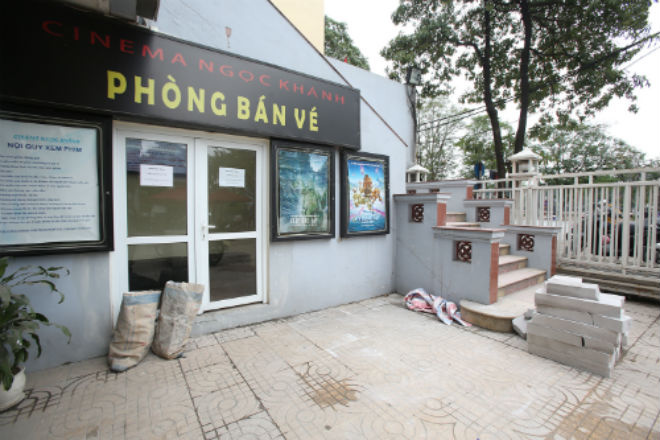 |
| Ngoc Khanh Cinema’s abandoned ticket booth |
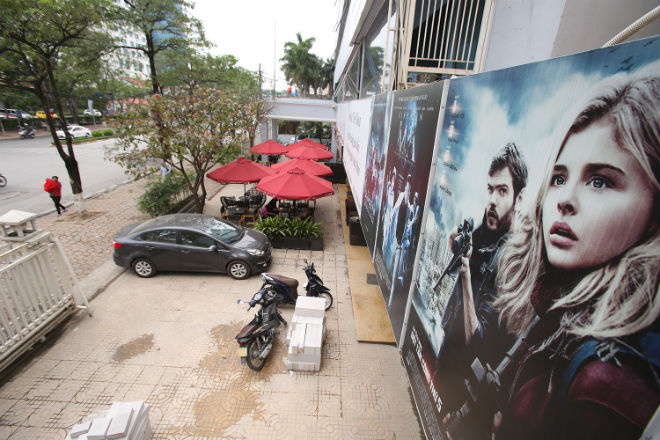 |
| The first floor of the Ngoc Khanh Cinema building is now rented to a restaurant and café |
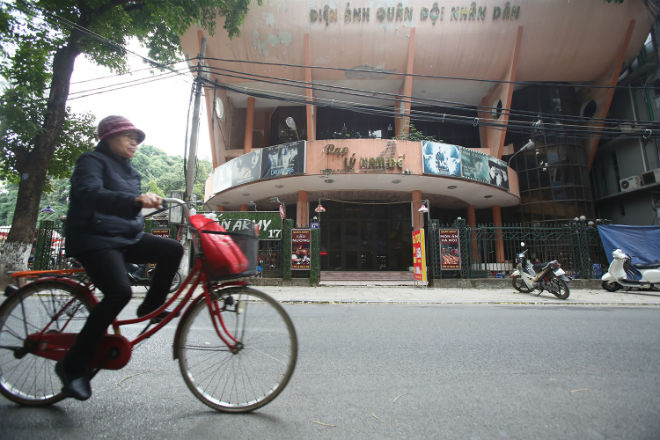 |
| Ly Nam De Cinema is now closed |
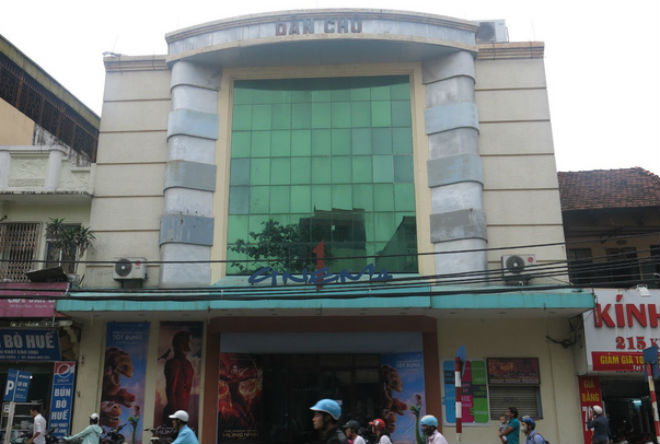 |
| Dan Chu Cinema was replaced by an electronics store |
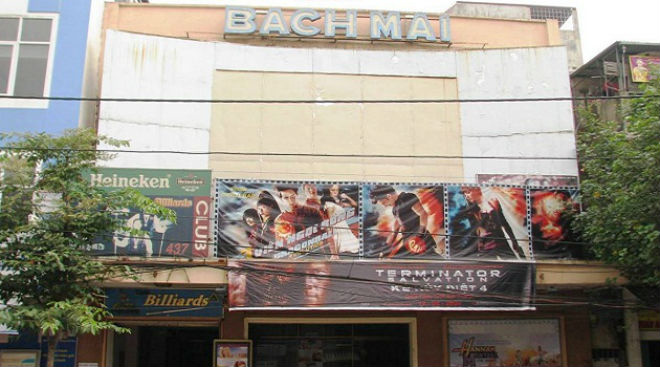 |
| Bach Mai Cinema has been closed down a while ago -- photo source:vnexpress |
| RELATED CONTENTS: | |
| Largest cineplex in Hà Nội forced to close at Vincom centres (update) | |
| Vietnamese film producers accuse CJ Cinemas of leveraging monopoly | |
What the stars mean:
★ Poor ★ ★ Promising ★★★ Good ★★★★ Very good ★★★★★ Exceptional
Latest News
More News
- Hermes joins Long Thanh cargo terminal development (February 04, 2026 | 15:59)
- SCG enhances production and distribution in Vietnam (February 04, 2026 | 08:00)
- UNIVACCO strengthens Asia expansion with Vietnam facility (February 03, 2026 | 08:00)
- Cai Mep Ha Port project wins approval with $1.95bn investment (February 02, 2026 | 16:17)
- Repositioning Vietnam in Asia’s manufacturing race (February 02, 2026 | 16:00)
- Manufacturing growth remains solid in early 2026 (February 02, 2026 | 15:28)
- Navigating venture capital trends across the continent (February 02, 2026 | 14:00)
- Motivations to achieve high growth (February 02, 2026 | 11:00)
- Capacity and regulations among British areas of expertise in IFCs (February 02, 2026 | 09:09)
- Transition underway in German investment across Vietnam (February 02, 2026 | 08:00)
















 Mobile Version
Mobile Version